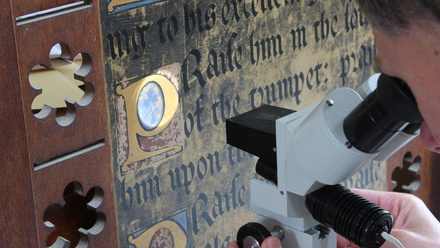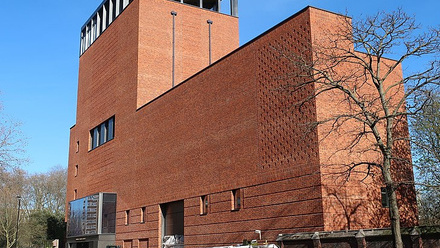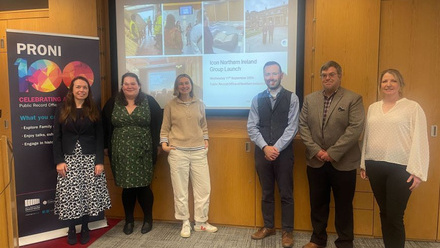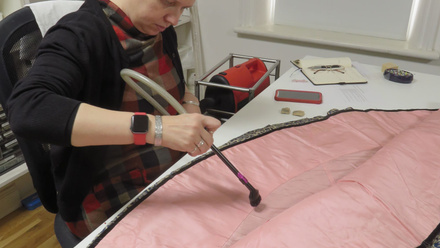AIM Programme Manager Margaret Harrison reflects on the “transformational impact” of three collections care and conservation grants schemes developed with Icon and the Pilgrim Trust.
A partnership to support small museums
The Association of Independent Museums (AIM) has just over 1000 member museums across the UK who care for a huge and significant range of historic objects and collections. Over 70% of our members are small (fewer than 20k visitors pa) and struggle to find the resources and expertise to meet their collections care and conservation needs.
The AIM Collections Care Audit, Collections Care and Conservation Grants schemes were developed with Icon and the Pilgrim Trust to deliver funding to support organisations that may lack the confidence or expertise to apply to a major funder directly. We introduced the schemes as a way of also underlining the importance of using professional conservation expertise.
The AIM Pilgrim Conservation Grant scheme has been running since 2013. In 2019, AIM successfully applied to the Pilgrim Trust to continue to run the scheme for a further three years to 2022. This offered a valuable opportunity to renew the partnership with Icon.
Grants with high demand
There are three different types of grants available:
- Collections Care Audit grants enable small museums to undertake a basic professional collections care audit. Working in partnership with Icon, AIM maintains a roster of 40 approved conservators who will undertake audits to help museums identify key collection care issues and priorities. The grant covers a standard three-day audit, which is a strong starting point for museums that have not previously had professional conservation advice.
- Collections Care grants help museums with under 50,000 visitors or a turnover of less than £300,000 pa to develop a more sustainable approach to the conservation and management of collections. Grants of up to £10,000 are available to enable museums to make a step-change in the quality of care they can provide.
- Remedial Conservation grants have the same requirements as Collections Care grants but help with the conservation of objects in their collections. Grants of up to £10,000 are available to conserve (with an Icon Accredited conservator) objects that are part of a museum’s permanent collection.
Demand for these grant schemes is consistently very high. In 2017 and 2018, the Remedial Conservation grants received £158,000 of applications for £100,000 of available funding while the Collections Care grants received £230,000 of applications for £100,000 of funding.
Museums can apply for up to £10,000 in both the Collections Care and Conservation grants schemes but on average grants awarded are around £5,000. In 2017-2018, there were 58 applications to the Collections Care scheme with 28 awards and 35 applications to the Conservation scheme with 28 awards. In the same period 34 applications for Collections Care Audits were received and 28 awards were made.
Transformational impact
The three grant schemes have been proven to work as not only a source of scarce conservation funding but as a robust and effective route to having a positive impact on collections care, access and learning across small museums.
1. Stepping stone towards high standards
The grants help smaller museums achieve the collections care standards required for the Arts Council England Museum Accreditation scheme. Audits provide an essential 'stepping-stone' into meeting museum standards for collections care and conservation for many volunteers who are new to the sector.
They can also be a step towards further funding on the other schemes. On occasion, the panel recommends Collections Care grant applicants apply for Audits funding as a first step. This is to ensure applicants benefit from the professional input that the Collections Care Audits process provides. Six Audits have now resulted in Collections Care grant applications, demonstrating the natural progression from one grant to the other. We expect 15 audits per year between 2020-2022.
2. Funding conservation, delivering confidence
All three grant schemes deliver conservation funding to parts of the sector that would not get similar support elsewhere. The Collections Care and Conservation grants are also the most wide ranging collections care funding schemes available. While the awards are modest (average grant £2773), they often create lasting impact for the museum.
For example, they recently enabled the creation of a new publicly accessible storage facility for the Isle of Lismore Museum (co-funded with Museums Galleries Scotland). A Collections Care grant allowed the Herne Bay Museum Trust to safely display their prototype of a Barnes Wallis bouncing bomb by funding the installation of dehumidification for a display case.
But don’t just take my word for it. The testimonies of past beneficiaires speak to the transformational impact of the grants:
"The grant was so helpful to us as we don’t have conservation expertise in house, and there aren’t many grants that fund object conservation. We now also have more confidence as an organisation in applying for conservation grants.” And “He (the conservator) was able to not only conserve the signs but to advise volunteers how best to look after the signs and our other metalwork at the same time.” Kingsbridge Cookworthy Museum - conservation of two important enamelled signs (award £2000)
“The funding has allowed us to continue to protect and conserve items in the collection in a time of financial cutbacks." Callendar House (Falkirk) - conservation of the Baird televisor (award £2155).
“ This one project has paved the way for developing a conservation list…” The St Andrews Preservation Trust Museum – conservation of two artworks by a local artist (award £1850).
Icon’s perspective
Icon’s role in this funded project has created a successful working partnership with AIM. The conservators who undertake the audits are all accredited members of Icon (ACR) shortlisted as specialists in preventive conservation. Icon members are the heart of the conservation sector, working to protect and care for cultural heritage in museums, in private collections and wherever else it might be found. The Pilgrim Trust grants have created opportunities for all involved – for accredited conservators to demonstrate their value to new clients that may otherwise may not have been able to appoint this level of professional input and so highlight the issues facing very small museums in relation to conservation.
“It is rewarding to note that the initial collection care audits have led to conservation projects also funded by these grants – that have made some unique artefacts accessible again by appointing an accredited conservator to do the work.” Icon Head of Professional Development Susan Bradshaw comments.
Be connected, be inspired – and join our call for high standards in conservation!
---
Image: Creative Commons






